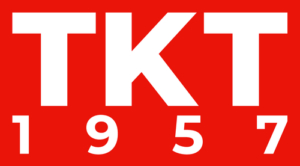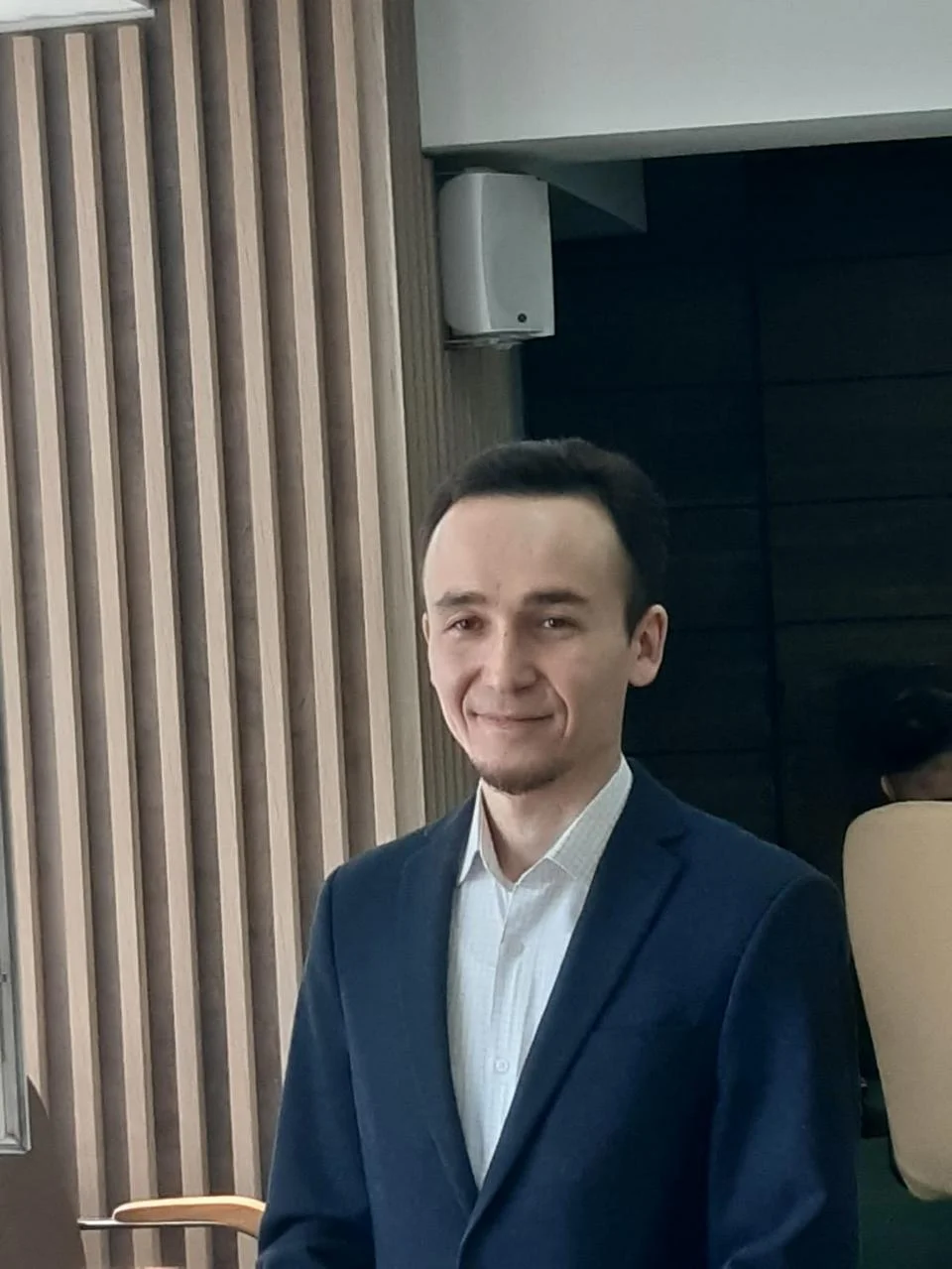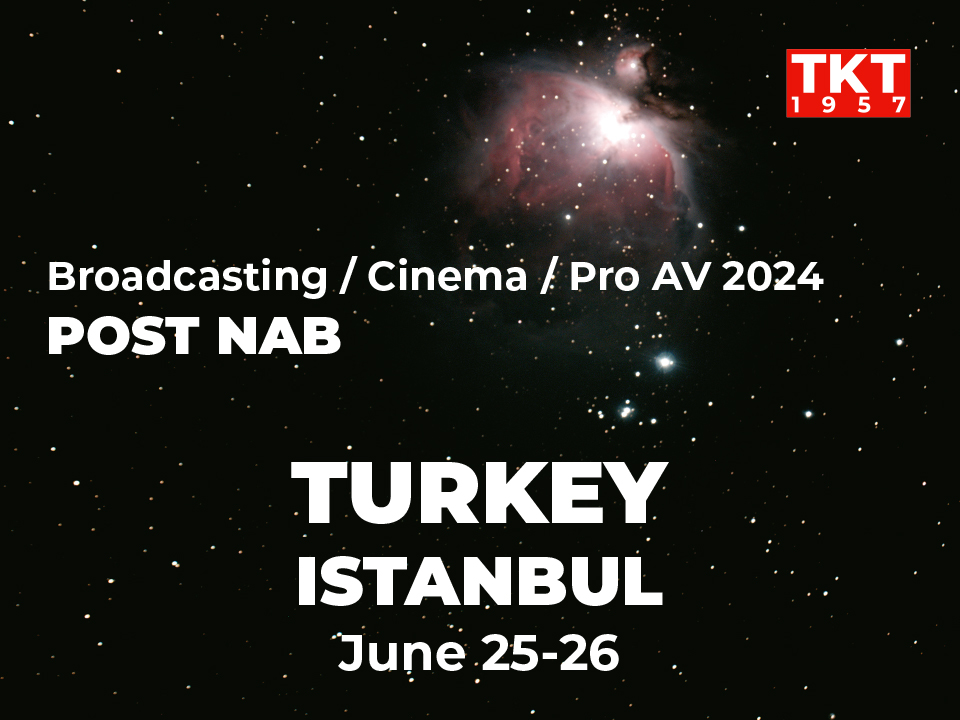Interview with Farhad Sarsekov, Aviteng Representative in Kazakhstan.
– Farhad, when and where were you born, and what did your parents do?
I was born on May 11, 1985, in Kazakhstan, more precisely in the West Kazakhstan region, Akzhaik district, in the village of Olenti.
I was the first child and grew up in a ordinary family. My mom is a teacher by profession, and my dad is a laboratory assistant.
My parents moved when I was three years old. They worked at the Rudny Industrial Institute. My mom, Marziya, is a teacher of Kazakh and Russian languages, and my dad, Beys, initially was a student at the institute, then a laboratory assistant, and later he was an assistant on technical issues, also drawing various projects for the institute.
There are two of us in the family. I am the older son, and I have a younger brother, Nurkhat, who was born in 1991.
– How was your school experience, given that your parents are involved in education?
I studied well. I was an excellent student. Until the seventh grade, I studied at the average Kazakh school No. 15 in the city of Rudny. Then in the seventh grade, I entered the Kazakh-Turkish lyceum in the city of Kostanay, where I also studied excellently. From 2003 to 2007, I studied in Almaty for a bachelor’s degree in international relations at the Kazakh National University named after al-Farabi on a scholarship, graduating with honors.
Then I got a job, selling electrical appliances. I worked for one year in the Turkish company Vestel. And then I entered the master’s program at the Faculty of Business, Law, and Social Sciences at the university in Glasgow, Scotland. I applied for the “Bolashak” program (international scholarship) and got in on a government-funded basis. I studied quite well. Then I worked part-time in Scotland as an organizer of various events. Then I lived in London for a while. When my visa expired, I returned to my homeland. Here, I continued to work in various quasi-governmental organizations.
– Let’s go back to your school years. When you were in school, what subjects were you inclined towards? What did you enjoy?
In general, I had inclinations towards both mathematical and humanitarian disciplines. But in the eighth grade, I had to choose whether to go to the math Olympiad or the English Olympiad. In general, my teachers gave me this choice, for which I am very grateful. And I chose English. I always won prizes at regional Olympiads, mostly second place.
– Why second?
In the eighth grade, I competed for the ninth grade. In the ninth grade, I competed for the tenth grade. In the tenth grade, I also competed for the tenth grade, took third place, and received an offer to participate in the Republican Olympiad in the city of Uralsk – this is the top in Kazakhstan. But there I took 10th place out of 24 participants.
In the 11th grade, I didn’t win anything because I was preparing to enter the university on a scholarship. Because I was good at English, I improved in other subjects. And I passed the state test, now called ENT. I passed, scored 103 out of 120 points. I was the first in the Kostanay region to score 103 points in Kazakh language in humanitarian subjects.
– By the way, what language did you speak at home?
In Uralsk, it’s customary to speak in Kazakh. Everyone speaks Kazakh. But in Rudny, I went to a Russian kindergarten. It was then that I began to relearn the Russian language. But I went to school in a Kazakh class.
In our family, we speak in two languages simultaneously. Parents mostly speak Kazakh. And my brother and I speak Russian.
– When did you start attending the Turkish lyceum, and what language was the instruction in?
Four-language instruction. Including 20 lessons of Turkish per week.
For the first six months, it was only languages and humanities subjects. After six months, exams. I passed English, Turkish, Kazakh, and Russian.
Then they added physics, mathematics, natural sciences. They were taught in English. The history of Kazakhstan, Kazakh language, and literature were taught in Kazakh.
I was very happy to be able to attend the lyceum. Teenagers need perseverance, some kind of busyness, especially in the senior classes. Because children start doing other things in the senior classes if there is no control over them. But we had a very strict order. We lived in the lyceum dormitory, in the boarding school, only boys, about 14-16 people in the room. We studied, after lunch came, changed clothes, then went downstairs. All in one building. We went back to class, continued studying. We had etudes, homework. After doing homework in the senior classes, I studied English. I had keys to the English language laboratory, where various educational video materials, books, etc. were stored. I sat there and studied English in the evenings. Others studied physics, some studied computer science, and so on. Until the educators called us to sleep. In general, this is how we spent time at the lyceum.
– So, to summarize, it turns out that there was, so to speak, the company “Decisive Youth”.
Yes, there was very strong motivation. Such that you need to bring benefit to Kazakhstan. And, in principle, the lyceum set educational goals. In Kazakh, we have such a word “Tarbiye”. Tarbiye means upbringing. So you have to be purposeful and diligent. We took roots from Kazakh upbringing: that is, to respect adults, respect traditions, and so on.
– How did you choose a university after graduation? Did you make the decision yourself or did your parents give you advice?
I chose several options where there were grants. As I said earlier, I come from a simple family, we were not in poverty, but studying at KazNU was unaffordable at that time, and I wanted to study in a big city, at a good university. I chose several faculties where I could get a grant. And showed options to my parents. They approved my decision, saying that if I got in, I would go to Almaty. I got in and went.
– Where did you live during your studies?
During my studies, I lived in the dormitory all four years. Then, when I graduated, I moved to an apartment and lived with friends from schoolmate Talgat and his classmate Ivan.
– Why did you choose this faculty and this specialty?
I chose the Faculty of International Relations, and by specialty, I am a regionalist-bachelor. We studied not the whole world globally, but individual territories, that is, for example, Eurasia, America, Canada. There was a grant, there was an opportunity to enroll, I thought little about what I would do in the future, and thought everything would turn out differently.
I decided to continue studying afterwards, although there was an opportunity to go to the Ministry of Foreign Affairs. But there was a low salary. I wouldn’t have been able to support myself even on that salary in those years, let alone help my mom. When I was studying at the university, my father died. I was at that time in the fourth year, my worldview changed, I realized that I needed to grow up and earn money myself.
– Did you enjoy studying at the university?
Yes, very much.
– What other languages did you study besides the ones mentioned?
French. English was mandatory, and from the second year onwards, you had to choose a region to study. I chose North America, and since many people speak French in Canada, I had to learn it. Plus, it’s considered a language of diplomacy. In Scotland, I also had a couple of French friends. I practiced conversational French with them. It turns out there’s a huge difference between conversational and academic French.
– You graduated from university and decided not to pursue the government career you had been striving for all these years. How did you find your first job?
I found my first job after completing my bachelor’s degree. I wanted to go straight to graduate school after my fourth year, but when my dad died, I had to postpone that plan. Well, not exactly postpone, but I started thinking maybe I needed to change something. So, I began looking for a job, one that would pay decently. I got a job at a Turkish company. The brand was Vestel – Turkish household appliances: large ones like vacuum cleaners, televisions, and smaller ones like tape recorders, video, and audio equipment. I started as a simple salesman in a store. It was clear from the beginning that it was temporary. Then a large boutique opened in the “Armada” shopping center. They made me the chief administrator there. I was earning very well at that time.
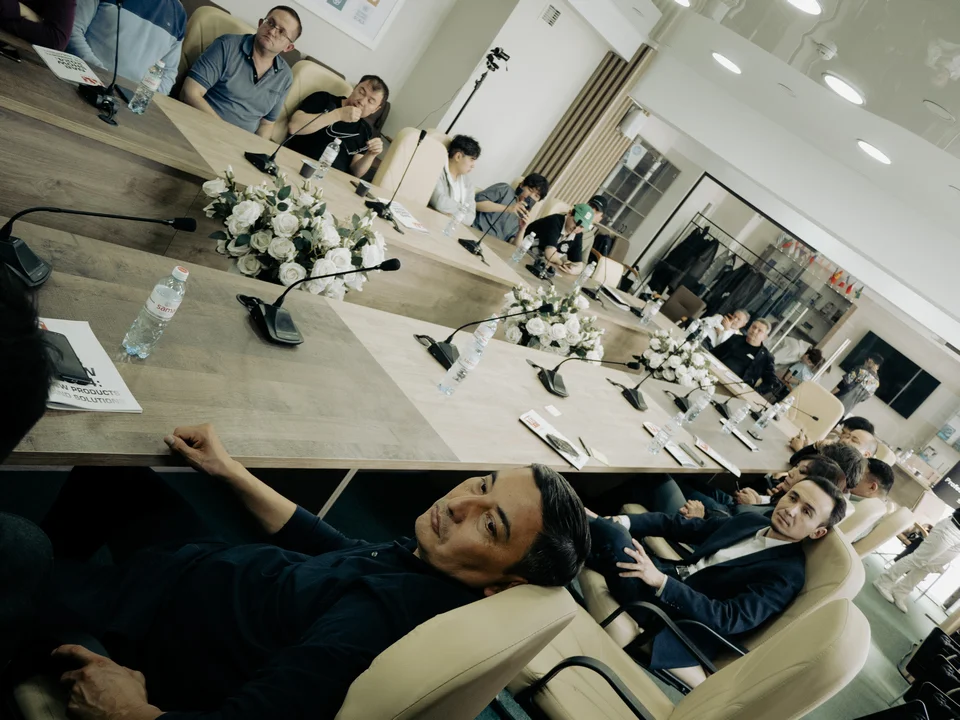
– How did you decide you needed to continue your education? How did you find this grant?
“Bolashak” is a presidential grant. Everyone knew about it. I applied independently to the University of Glasgow, received an unconditional offer from them. And then with this offer, I applied for the grant, for financial support. If I hadn’t received the grant, I wouldn’t have gone to study. I wouldn’t have been able to pay for everything on my own.
– Did the grant include accommodation and meals?
Everything was included, tuition fees plus a stipend of $1200 or $1500 per month. In 2008-2009, that was decent money. I managed my finances myself. So, some went to textbooks, some to personal expenses, clothes, food, etc.
– After those games ended, how did your life and career progress?
After that, I worked at the Committee of Science of Kazakhstan, organizing state scientific and technical expertise. I handled correspondence, contracts with foreign scientists regarding our state projects and Kazakhstani institutes that had received grant funding from the state. I organized the entire process but didn’t make decisions. I participated in all this organization. I worked there for two years, rising to the position of head of the department for working with foreign experts.
Then I moved into another niche – building NIS (Nazarbayev Intellectual Schools). Overall, we built 17-18 schools in Kazakhstan. I worked there for 6.5 years. I started as a manager of technological equipment. Then I got involved in various construction works, equipment installation. So, I dealt with everything in the school: laboratories, interactive panels, computers, where everything should be placed, how the kitchen, educational, administrative blocks, gym should work. I traveled to sites in Kazakhstan and prepared schools for the opening ceremony.
Our board chairperson was a seasoned individual, an incredibly strong woman in terms of education and organizing education – Kulash Nogataeva. She started her career as a teacher.
We had other excellent specialists in our team too, experienced builders, adults, an experienced head of technological equipment, Askar Kairbayuly, and the administration and the entire team were very strong overall. I listened to all of them and put everything in order according to their instructions.
My knowledge of English also helped me because most of the equipment was foreign. I worked as a manager for six and a half years, then a senior manager, then an assistant to the chairman. Then I returned to my department – the directorate for the construction and operation of schools. By then, we had built all the schools in Kazakhstan. There, I became the deputy director.
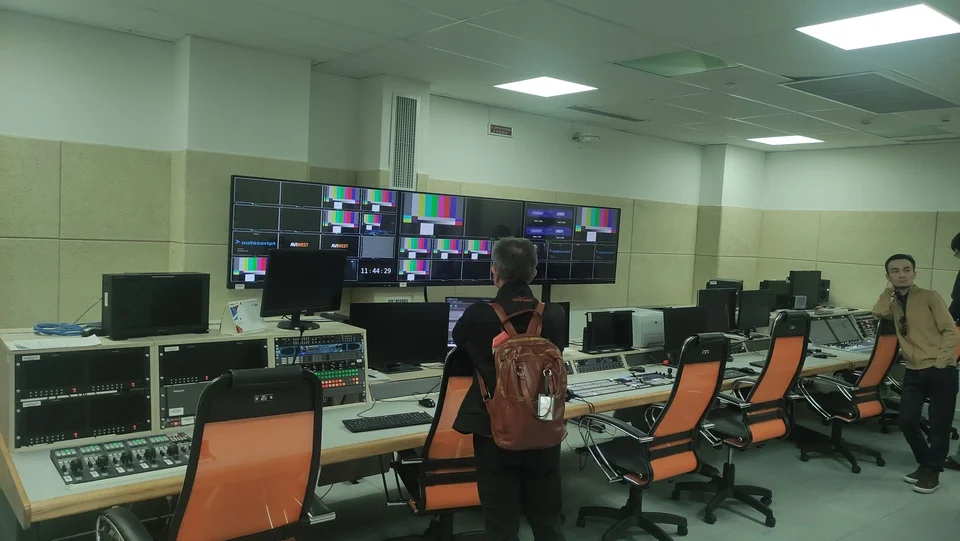
– What happened in 2020?
In 2020, optimization took place. We executed part of the strategy, built schools, set them in motion, and operations were in full swing.
There were layoffs. I was offered to move to another department for a different position. But I wasn’t very interested anymore. Plus, that’s when COVID started, by the way.
– I wanted to ask, how did you end up without a job?
What could I do? There were layoffs. We received compensations. I applied for government support; at that time, I already had three children. I got married in 2013, my wife’s name is Zhanar. We had set aside a certain amount of money for such cases in advance; after all, we were forewarned.
– So, you found yourself without a job with three kids, right?
Yes, that’s what happened. But I had money because I was earning well.
I had already booked a trip to Malaysia in advance. We left in March when borders started closing, and the situation with COVID was escalating. We lived on Langkawi Island for a month, returned, and immediately got caught up in quarantine. I took up a side job for four months.
Then I wanted to change everything, and then I received an offer to work in equipment supply for education. I worked there for three years, gaining experience in sales. And from this year, I joined the Aviteng company.
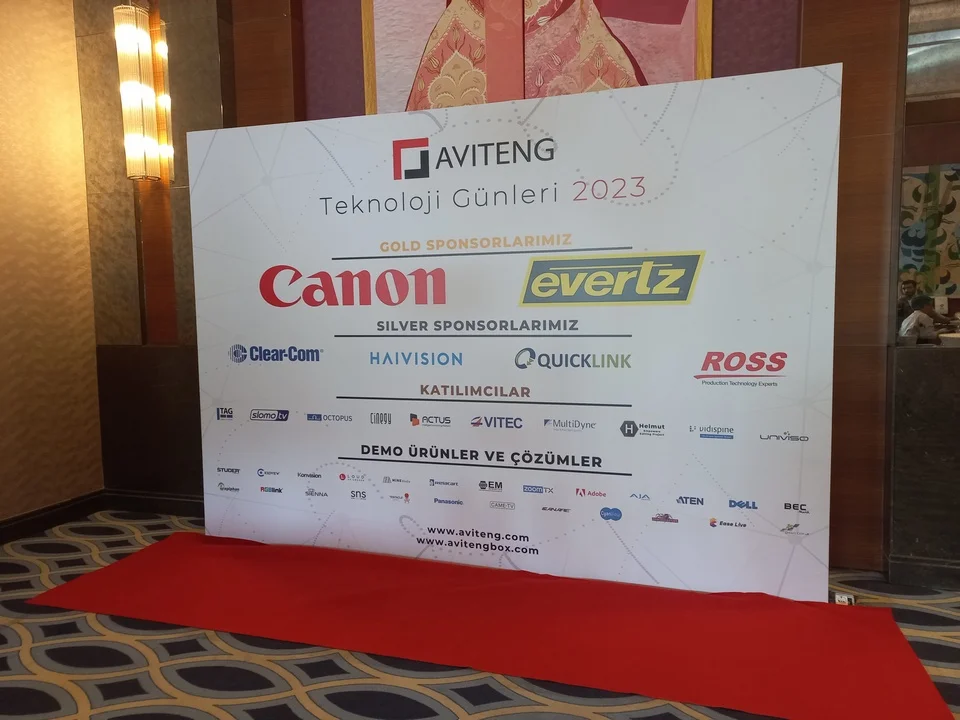
– How did you find this company?
They found me through friends, acquaintances who are also involved in supplying technological equipment and solutions in the broadcasting field.
– Aviteng works with both broadcasting and Pro AV?
Yes, Pro AV, broadcasting, cinematography, and, in general, all technological IT equipment. Aviteng stands for audio, video, IT, and Engineering.
They build systems for various channels and media centers, as well as smart buildings, palaces, museums, concert venues. In general, a very wide range, a large portfolio of various equipment.
– What tasks were set before you when you were invited?
The task was to establish networking, that is, communication with local companies (stakeholders) working in the television, broadcasting, and Pro AV fields. That is, to establish communication with Kazakhstani TV channels, companies from Kazakhstan, construction companies. Representing Aviteng’s interests. Plus, helping organize various events, visits, assisting my foreign colleagues in Kazakhstan.
– Were they working in Kazakhstan before that?
Yes, yes. Our company was previously involved in building “Kazmedia Ortalygy.”
And now the company is working on the Palace of Independence project in Astana. The company has extensive experience in Central Asia, Eurasia, Turkey, the Middle East, and Africa.
– Are you alone, or do you have employees?
I am the only one from Kazakhstan. But now we have a project with the participation of foreign employees. Our ten foreign colleagues are here now. I assist them in this project. In procurement, working with local organizations, and sometimes with housing. So that they don’t have difficulties and can focus on the specific work they came here for.
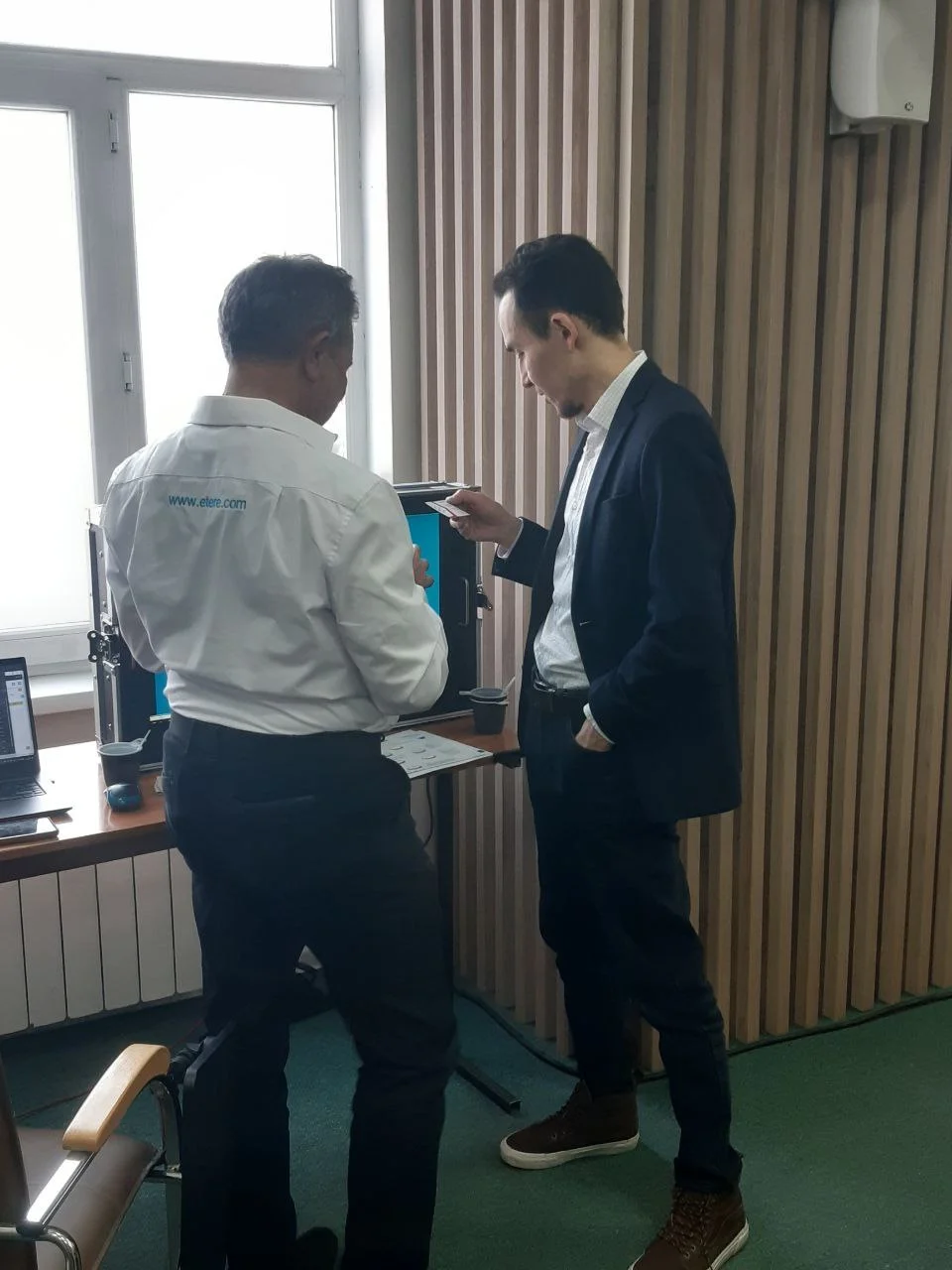
– What is the new project about?
We are preparing for the SCO*. We are participating in integrating the broadcasting system there. The broadcast will cover meetings of the presidents of member countries, as well as various conferences in the future. We lay cables, connect studio lighting, supply filming equipment. The command center will be located in the same building, directors and operators will manage the entire process from here. Then the live feed will be broadcasted to channels across the country and abroad.
Very high-tech equipment is used.
– How do you work? How do you find clients?
I have experience working with various organizations. I used to negotiate, sell, organize events, communicate with Kazakhstani and foreign companies, with people. I know many construction companies in the Kazakhstani market, participate in various events, forums, conferences, and so on. I study the market. This is how I find clients and partners.
– Let’s talk a little more about your personal life. How did you meet your wife? What was she doing?
She is my former colleague; we met in 2011. We worked together at the Center for Scientific and Technical Expertise under the Committee on Science of Kazakhstan. We were friends. And when I quit, it so happened that our friendship turned into love, and I proposed to her. We got married in 2013, when I was working at NIS. In 2014, our daughter Altynai was born, in 2016 – son Aisultan. In 2018, our second son was born, so the third child, Ilyas. And recently, in September 2022, our son Ansar was born.
We have four children, thank God, everything is fine. My wife has been on maternity leave for 10 years, she also wants to work, I hope she finds something she loves.
– What do you consider your main achievement in life?
I have no regrets about the past. I have extensive life experience and a large family.
Both in terms of career and in life, there are significant achievements. Family, parents, close ones, my brother, we all understand and take care of each other. I have many friends, no enemies, I also consider it an achievement. And I have knowledge of different languages, many foreign friends. Achieving the understanding that I value my family, my country, I want to work for the benefit of society, I want to be useful to everyone!
*The Shanghai Cooperation Organization (SCO) will hold its next summit on July 3-4, 2024, and the venue will be Astana.
